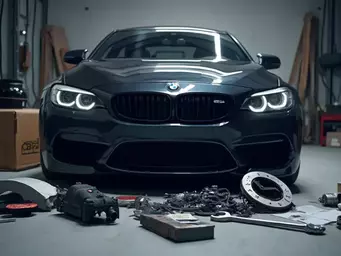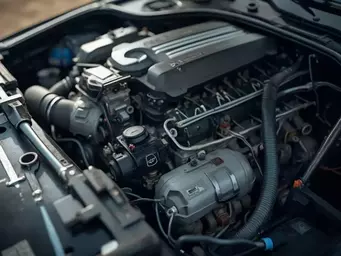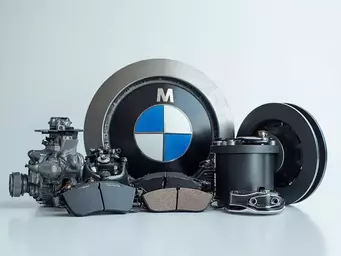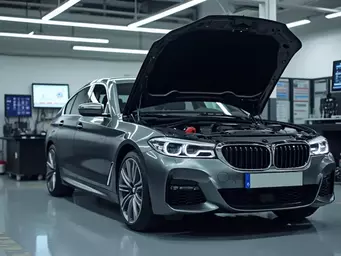Choosing the Right BMW ECU
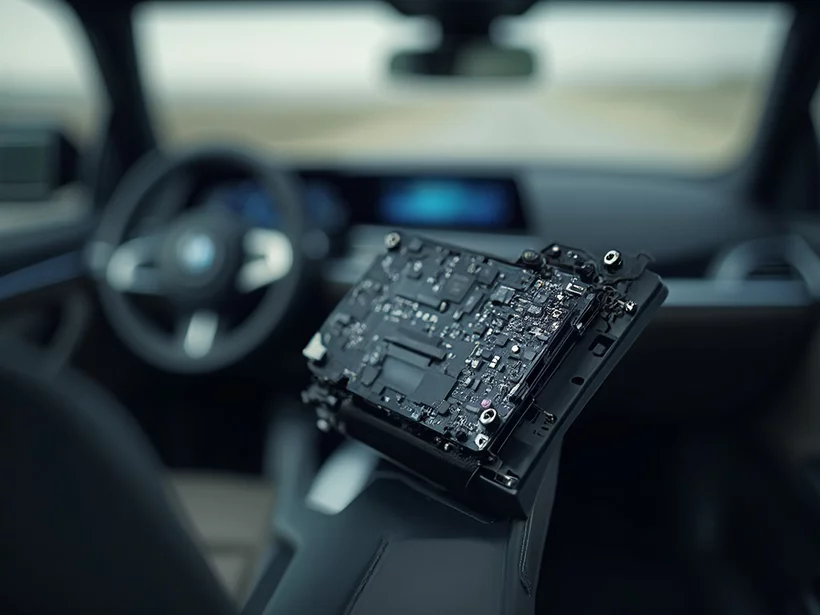
Did you know that the Engine Control Unit (ECU) is often referred to as the brain of your BMW? It plays a critical role in optimizing your vehicle's performance and efficiency!
What You Will Learn
- The ECU monitors engine parameters like temperature and pressure to ensure optimal performance.
- Real-time data processing allows the ECU to adjust fuel delivery and maintain emission standards.
- Understanding your specific BMW model and engine type is crucial for selecting the right ECU.
- There are key differences between OEM and aftermarket ECUs that can affect performance and budget.
- Regular maintenance and care can significantly extend the lifespan of your ECU, typically 10 to 15 years.
- Engaging with online forums can provide valuable insights and recommendations for ECU upgrades and troubleshooting.
BMW ECU Lifespan, Cost, and Warranty Overview
Understanding the typical lifespan, cost considerations, and warranty options for BMW ECUs is crucial for informed ownership and maintenance decisions.
Typical Lifespan of a BMW ECU
On average, a BMW ECU can function well for about 10 to 15 years with proper maintenance.
Cost Considerations for BMW ECUs
- OEM ECUs: $500 - $1,500
- Aftermarket: From $300
- Additional: Installation & Programming Fees
Warranty Options for BMW ECUs
- OEM Warranty: 1 - 3 years
- Aftermarket: Varies by brand
- Exclusions: Improper installation, modifications
Where to Buy Authentic BMW ECUs
- Authorized BMW Dealerships
- Certified Parts Distributors
- Reputable Online Retailers
Understanding the Engine Control Unit (ECU) in BMW Vehicles
The Engine Control Unit (ECU) is a crucial component in every BMW vehicle. It acts as the brain of your car's engine, overseeing a wide range of functions that contribute to overall performance, safety, and fuel efficiency. By processing data from various sensors, the ECU ensures that the engine operates at its best, whether you're cruising down the highway or navigating through city traffic.
Within the ECU, complex algorithms and programming work together to manage fuel injection, ignition timing, and even emission control. This means that an efficient ECU can lead to a smoother driving experience and better gas mileage. Have you ever wondered how your BMW achieves optimal performance? It's all thanks to the sophisticated technology embedded in the ECU!
What is an ECU and Its Role in BMW Performance?
So, what exactly does the ECU do? In essence, it collects data from various sensors placed throughout your vehicle. This data helps the ECU make real-time adjustments to engine operations, ensuring everything runs smoothly. For more comprehensive technical information about BMW vehicles, including components like the ECU, you can often find detailed service manuals and technical documents on platforms like bmwtechinfo.bmwgroup.com, which is a key resource for BMW technical data.
Here are some key roles the ECU plays:
- Monitoring engine parameters like temperature and pressure
- Adjusting fuel delivery for optimal combustion
- Regulating emissions to comply with environmental standards
- Detecting and diagnosing engine issues through fault codes
Understanding the role of the ECU is essential for any BMW owner. If you notice any changes in your car's performance, it might be time to take a closer look at this vital component.
Importance of ECU in Modern BMW Technology
BMW vehicles are renowned for their cutting-edge technology, and the ECU is at the heart of this innovation. Modern ECUs interact with numerous vehicle systems, processing sensor data in real-time to deliver comprehensive diagnostics and performance enhancements. This interaction not only improves performance but also enhances safety features like traction control and stability management. Government agencies such as the National Highway Traffic Safety Administration (NHTSA) frequently publish reports and regulations related to automotive safety and technology, which often highlight the critical role of electronic control units in vehicle performance and safety.
Let's explore why the ECU is indispensable in today's BMWs:
- Integration with advanced driver-assistance systems (ADAS)
- Real-time data processing for performance optimization
- Ability to receive software updates for improved functionality
This level of connectivity and sophistication makes the ECU a vital player in modern automotive technology. It's no wonder that a well-functioning ECU can significantly enhance your BMW driving experience!
Key Components of BMW ECUs: Engine Management and Sensors
At its core, the BMW ECU comprises several key components that work together to manage engine performance effectively. Engine sensors are particularly important, as they provide the data the ECU requires to make informed decisions. Here are some of the critical components involved:
- Mass Airflow Sensor (MAF): Measures the amount of air entering the engine
- Throttle Position Sensor (TPS): Monitors the position of the throttle valve
- Oxygen Sensors: Relays information about exhaust gases to improve fuel mixture
- Knock Sensors: Detects engine knock and adjusts timing accordingly
By having a solid understanding of these components, you can make informed decisions when it comes to performance tuning or replacing your ECU. Remember, each sensor feeds vital information to the ECU, ensuring that your BMW runs efficiently and effectively!
Choosing the Right BMW ECU: Key Considerations
Identifying Your BMW Model and Engine Type
Before diving into ECU selection, it’s essential to know your specific BMW model and engine type. Each model may require a different ECU to function optimally. For example, a BMW 3 Series with a turbocharged engine will have different ECU requirements than a BMW X5 with a naturally aspirated engine.
Here are a few tips to identify your BMW model and engine type:
- Check the vehicle identification number (VIN) for specific details
- Refer to your owner's manual for model specifications
- Look up your model online or consult BMW forums for insights from other owners
Understanding these details ensures that you choose an ECU compatible with your vehicle, ultimately leading to better performance and reliability.
Evaluating Performance Needs: Racing vs. Daily Driving
Your driving goals significantly influence your choice of ECU. Are you an enthusiast looking to race, or do you primarily use your BMW for daily commuting? Knowing your performance needs can help you make the best decision. Let's break it down:
- Racing: An ECU designed for racing typically offers enhanced tuning capabilities and aggressive performance settings.
- Daily Driving: A more standard ECU may prioritize fuel efficiency and smooth performance, keeping your ride comfortable and economical.
Identifying your primary driving needs will guide you in selecting an ECU that aligns with your lifestyle and enhances your overall driving experience.
Aftermarket vs. OEM ECUs: Understanding Your Options
When it comes to choosing an ECU, you'll encounter two primary options: Original Equipment Manufacturer (OEM) and aftermarket ECUs. Each comes with its own set of pros and cons. Here's what you need to know:
- OEM ECUs: These are produced by BMW and guarantee compatibility, but often come at a premium price.
- Aftermarket ECUs: These can offer cost savings and enhanced features, but quality and compatibility can vary between brands.
Weighing these options will help you find the right balance between performance and budget. Remember, quality should never be compromised when it comes to your BMW's performance!
Pro Tip
When considering an ECU upgrade, always ensure that you research compatibility with your specific BMW model. Utilize online forums and community insights to gather experiences from other owners who have made similar upgrades. This can provide valuable information on performance improvements and potential issues, helping you make a more informed decision.
Addressing Common Concerns about BMW ECUs
What is the Typical Lifespan of a BMW ECU?
The lifespan of a BMW ECU can vary, but several factors can influence how long it lasts. On average, you can expect your ECU to function well for about 10 to 15 years if properly maintained. However, environmental conditions and usage patterns play significant roles in determining this lifespan.
For instance, harsh weather conditions or frequent short trips can stress the ECU and lead to premature failures. Regular maintenance practices, such as ensuring your vehicle is free from electrical issues and keeping connections clean, can help extend the life of your ECU. Have you checked your vehicle's wiring lately? It might be a good idea!
- Regular vehicle maintenance
- Driving conditions (extreme heat or cold)
- Frequency of use
- Electrical system health
By keeping these factors in mind, you can better understand how to care for your ECU and potentially increase its lifespan.
Cost Considerations: Budgeting for Your BMW ECU Purchase
When it comes to purchasing a new ECU, budgeting is essential. Prices can range significantly based on whether you opt for OEM or aftermarket options. Generally, OEM ECUs can cost anywhere from $500 to $1,500, while aftermarket options might start at around $300 but can go up depending on features and brand.
Aside from the ECU itself, don’t forget to factor in additional costs such as installation and programming. Installation can vary widely depending on your location and the complexity of the job, so it's wise to get quotes before moving forward. Are you prepared for these extra expenses?
- OEM ECU costs: $500 - $1,500
- Aftermarket ECU costs: from $300
- Installation fees: varies by mechanic
- Programming costs: additional depending on the ECU
Being clear about your budget can help you make informed decisions when selecting the right ECU for your BMW.
Evaluating Warranty Considerations for Your ECU
Understanding warranty options is crucial when purchasing an ECU. OEM ECUs typically come with a warranty that can range from 1 to 3 years depending on the manufacturer. This warranty often covers defects but may not include issues caused by improper installation or modifications.
On the other hand, aftermarket ECUs may offer limited warranties, and the coverage can vary significantly between brands. Always read the fine print to know what is included and what isn't! This can prevent any unexpected surprises down the road.
- OEM warranty: 1 - 3 years
- Aftermarket warranty: varies (check brand specifics)
- Common exclusions: improper installation, modifications
Being aware of these warranty details can help you protect your investment and ensure peace of mind with your purchase.
Frequently Asked Questions about BMW ECUs
- 1. What is the primary function of a BMW ECU?
- The BMW ECU (Engine Control Unit) acts as the brain of your car's engine, managing critical functions like fuel injection, ignition timing, and emission control to optimize performance, efficiency, and safety. It processes data from various sensors to make real-time adjustments.
- 2. How long does a BMW ECU typically last?
- On average, a BMW ECU can function well for about 10 to 15 years with proper maintenance. Its lifespan can be influenced by factors such as driving conditions, regular maintenance, and the overall electrical health of the vehicle.
- 3. What are the cost differences between OEM and aftermarket ECUs for a BMW?
- OEM (Original Equipment Manufacturer) ECUs typically range from $500 to $1,500, while aftermarket options can start from around $300, varying based on features and brand. It’s also important to budget for additional installation and programming fees.
- 4. Where can I safely purchase an authentic BMW ECU?
- Authentic BMW ECUs can be purchased from authorized BMW dealerships, certified parts distributors, and reputable online retailers. It is recommended to check reviews and seller ratings when buying online to ensure quality and avoid counterfeit parts.
- 5. Why is professional assistance recommended for ECU installation and programming?
- ECU installation and programming can be complex, especially for those unfamiliar with automotive electronics. Professional assistance ensures correct installation, proper functionality, and can prevent potential issues, particularly when considering performance upgrades or customizations.
Next Steps for BMW ECU Selection
Where to Buy Authentic BMW ECUs Safely
Finding authentic BMW ECUs is crucial for maintaining your vehicle's performance. Reputable sources include authorized BMW dealerships, certified parts distributors, and trusted online platforms. When purchasing online, make sure to check reviews and seller ratings to ensure quality.
- Authorized BMW dealerships
- Certified parts distributors
- Reputable online retailers
- Local automotive shops with good reviews
By sourcing your ECU from reliable vendors, you can minimize the risk of buying counterfeit parts that could harm your vehicle.
Encouragement to Seek Professional Assistance
When it comes to ECU installation and programming, there’s a significant advantage in enlisting the help of professionals. If you're not experienced with automotive electronics, the complexities of ECU programming might be daunting. Seeking professional assistance ensures that everything is installed correctly and functions as intended. For deeper insights into vehicle electronics and safety, academic journals and research papers are excellent resources. Searching databases like Google Scholar with terms such as "automotive electronic control unit optimization" or "vehicle electronics safety and performance" can yield valuable information.
Don't hesitate to consult a trusted mechanic or technician, especially if you're considering performance upgrades or customizations. Have you thought about discussing your options with a professional before making a purchase?
Engaging with Online Forums for ECU Insights
Online forums and communities can be invaluable resources for BMW owners. Engaging with fellow enthusiasts allows you to gain insights on troubleshooting, recommendations for specific ECUs, and the latest trends in ECU technology. It’s a great way to learn from others' experiences!
- Ask questions and share experiences
- Get recommendations for products
- Learn about common issues and solutions
- Stay updated on new ECU technologies
By leveraging these online communities, you can enhance your knowledge and feel more confident in your ECU selection process.
Recap of Key Points
Here is a quick recap of the important points discussed in the article:
- The Engine Control Unit (ECU) is essential for managing engine performance, fuel efficiency, and emissions in BMW vehicles.
- Key functions of the ECU include monitoring engine parameters, adjusting fuel delivery, regulating emissions, and diagnosing engine issues.
- Understanding your specific BMW model and engine type is crucial when selecting the right ECU for optimal performance.
- Consider your driving needs—whether for racing or daily use—when evaluating ECU options.
- Weigh the pros and cons of OEM versus aftermarket ECUs to balance quality and budget.
- Regular maintenance and professional installation can extend the lifespan of your ECU and improve your overall driving experience.

